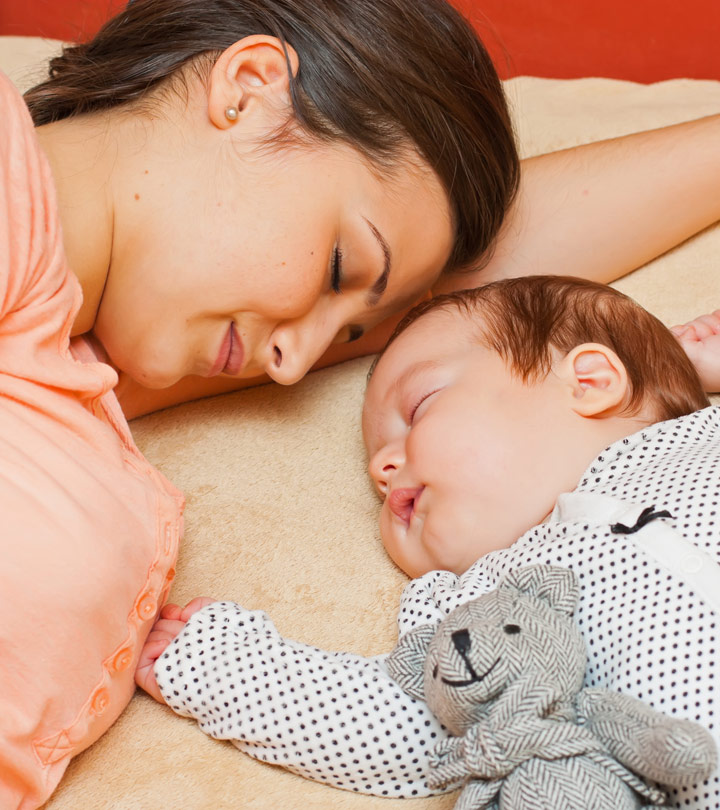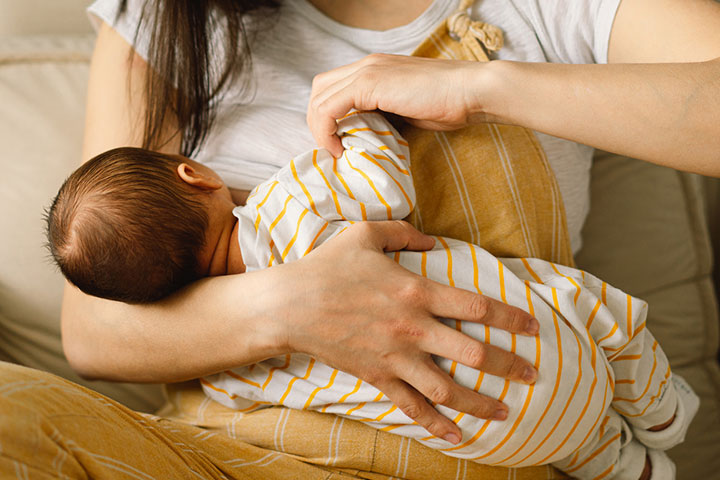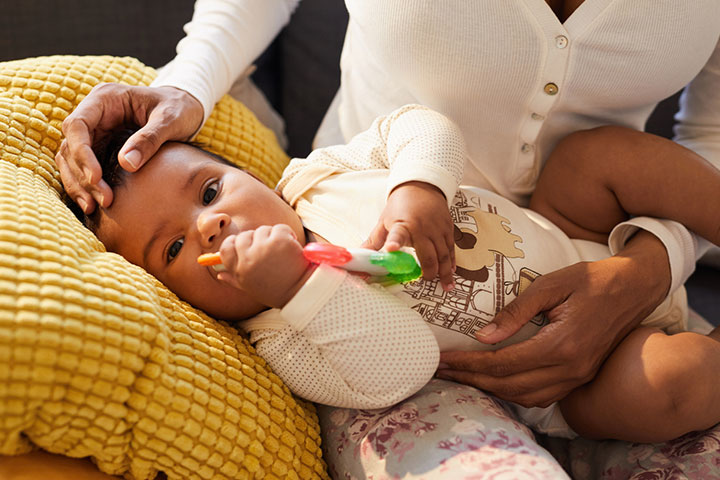As your newborn grows, you will observe changes every few days. When babies reach three months, they start responding more to their surroundings, shows a predictable sleep pattern, explore objects around them, and cry less. At this juncture, if you are looking for some smart and effective 3 months baby care tips, you are at the right place. Your baby’s developing activities may excite you, but you need to adapt your baby-care regime to match and support the physical and psychological development of your little one. Additionally, you may need to take necessary measures to ensure their safety. In this post, we have compiled a list of useful baby care tips for 3-month-olds to help you take better care of them.
Most Useful 3 Months Baby Care Tips
1. Continue breastfeeding
Breast milk is the healthiest food for a three-month-old baby. Still, many three-month-olds are not exclusively breastfed. According to the US CDC National Immunization Survey 2012-2019 report, only 45.3% of infants were exclusively breastfed through three months in 2019.
Experts suggest that breastfeeding is a crucial part of three-month baby care. Moreover, babies tend to develop a feeding schedule in the third month. Hence, breastfeeding plays a significant role in the care and development of a three-month-old baby.
You may also include formula feeding if your doctor suggests it for your baby. However, avoid giving your baby juice, cow’s milk, plain water, or any solid food at this stage. If you are a working mother, pump your breast milk into a bottle with the help of a special breast pump and store it in a refrigerator. Breast milk can last for up to 48 hours in a refrigerator. Instruct your hired caregiver to feed your baby the milk using a bottle when you are away at work (1).
2. Put Your Baby To Sleep
A three-month-old baby tends to sleep for five to six hours continuously. So you can try to start to put your baby to sleep at night. Make sure you make them sleep on their back and let them sleep by themself. Burping the baby after feeding, bathing, and swaddling will also help to make the baby comfortable and facilitate good sleep. Even if three-month-old infants wake up and cry in the night, they tend to go to sleep again after some time (2). However, the nighttime waking could also mean they are hungry. You may consult with your pediatrician about the baby’s sleep and feeding expectations based on their development and weight.
3. Communicate With Your Baby
In the third month, your baby is much more expressive than earlier and responds to sounds and gestures. Make simple gestures to amuse your baby while also bonding with them. Use sounds and songs to attract her attention. Since your baby tends to develop a good grip, you can place safe and soft toys in their hands during their playtime and let them discover them. Grabbing soft toys will please your baby and entertain her. You can play peek-a-boo games with her.
4. Encourage Developmental Changes
In the third month, your baby will exhibit many growth and developmental milestones, like chewing, sucking, chomping, and drooling. Even though a three-month-old does not have any teeth, they like putting something in their mouth, and this is when teethers and other teething toys can amuse your little angel. Also, your baby likes to go out and watch the surroundings. So you can schedule some time to take your three-month-old out in the park every day (3).
Amber, a mom of four children, shares her youngest baby, Brady Jordan’s three-month developmental milestones on her blog. She says, “Brady remains on a pretty consistent eating schedule. He sleeps and eats and plays around the same time every day. Brady’s eating about 5 to 7 times every day and 3 of those are from the bottle.
“He smiles in response to anyone saying hello and talking to him in a sweet voice,.he especially loves looking at and ‘chatting’ with his sisters. He’s got awesome head and core control and can be held on my hip without being too floppy and in the times we have laid him on his tummy to play he raises his head up and moves around as he pleases with ease. I have noticed that he’s starting to turn himself to the side when he’s laying in the swing or in the dockatot. He takes 1-2 long naps during the day – usually about 2 hours in the morning and 2+ hours in the afternoon around 2-3pm (ⅰ).’’
5. Exercise Safety Precautions
Your baby turns clever now and puts objects that she comes across straight into her mouth. So you need to be extra careful and work more for her safety. Scan the environment around her. Keep all medicines, pointed toys, and other stuff that may harm your baby away from her. Place the baby crib away from doors and windows. Disinfect the baby gear and baby’s room, and keep it clean at all times. Make sure your infant’s car seat is in the back seat since it is the safest for her. Ensure your infant is well-secured in her car restraint when on the go.
Additionally, babyproofing your home can help create a safe environment for your little one to explore and develop in. Another useful tip to take care of your three-month-old baby is to ensure that they receive their vaccinations on schedule, while also keeping track of their growth milestones through regular pediatrician visits.
Your 3-month-old baby may be developing a personality now. You may now be familiar with their feeding and sleeping cues and schedules. You can begin singing songs to them as they are now more interested in interaction. Further, get them some teethers as they begin to explore the world with their mouth at this age. For 3-month-olds, exclusive breastfeeding is recommended as the healthiest way of nourishment. 3-month baby care also includes taking the necessary steps for their safety and well-being, such as using a car seat when you take the baby outdoors.
Key Pointers
- Breastfeed your 3-month-old baby as it is the healthiest food.
- Make sure your baby sleeps on their back and in their own bed.
- Use gestures, sounds, and songs to communicate with your baby.
- Help your baby’s development by providing teethers and taking them to the park.
- Ensure your baby’s safety by keeping harmful objects out of reach and using a car seat.












